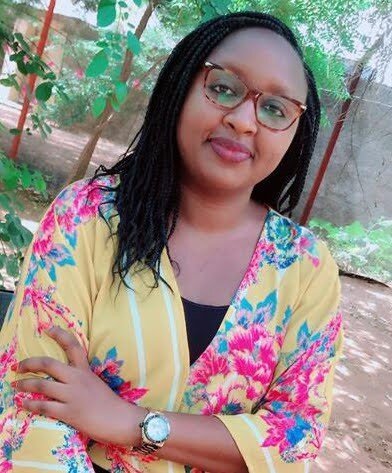Why Gender Equity Needs to be a Priority in Agricultural Research - Q&A with MLEx Fellow, Judy Ngina
2021 Mawazo Fellow Ngina Judy is a Kenyan junior researcher who is enthusiastic about exploring topics that navigate the nexus between gender and development. Her research at the University of Nairobi is on understanding the existing gender dynamics in the field of agriculture and their effects on the uptake of new technologies and methodologies. She is also a Child Protection Officer at Dadaab Refugee Camp.
Author: Naliaka Odera
Q: What is the focus and goal of your research?
A: My research looks at existing gender dynamics in the field of agriculture and their effects on the uptake of new technologies and methodologies. Findings from my research will inform best practices for gender mainstreaming in the field of agriculture, especially in improved methodologies, including Climate-Smart Agriculture, that could aid in increasing food security in Kenya in the face of climate change. Essentially, my research work seeks to promote the normalization of gender mainstreaming in the planning, implementation, and monitoring stages of development projects.
Q: What first made you fall in love with your profession? Both in terms of the work you do as a Child Protection Officer, and the research that you do looking at gender dynamics in the agricultural industry.
A: I believe in the hope for a better tomorrow where gender mainstreaming is at the heart of development. Social inclusion and social equality are foundational pillars in the attainment of development objectives and that is the driving force behind my love for research in gender and development. The zeal to see a more equal society also pushed me into the field of child protection where I support children at risk, children on the move, refugee children, and children seeking asylum, to access basic services and live a dignified life.
Q: What are the implications for science application if we are not gender-sensitive and specific?
A: The lack of gender-sensitive and gender-specific approaches to the application of science, hinders participation by all and thereafter negatively affects the uptake of research findings. It also decreases the sense of ownership of projects. In Climate-Smart Agriculture, for example, research has informed the innovation of technologies and methodologies that enhance implementation. However, minimal and unequal participation results in the innovation of technologies that are not gender considerate. For instance, the Money Maker Hip Pump, a low cost, transportable water pump, requires a lot of physical strength to pump water making it more suitable for men than their female counterparts. Hence, research can often fail to achieve its optimum impact when gender mainstreaming is overlooked.
Q: How does gender imbalance, especially in science application and access, affect development in a region? How can we combat that issue?
A: Lack of equal representation in the access and application of science derails the uptake of new knowledge and technologies that could stimulate economic growth. Women have remained underrepresented in research, both as researchers and research participants and/or consumers, thus underutilizing their potential. According to the World Bank, women make up to 80% of farmers in Kenya. Sadly, these women remain underrepresented in agriculture as they lack access to extension information and services, financial resources, and land. Generally, this not only decreases food production, but also affects the quality of food produced and, more generally, food security in the country. Understanding the importance of and allowing both men and women to be at the decision-making table will go a long way in ensuring that the existing gender gaps in science are closed.
Judy Ngina is pursuing a PhD degree in Gender and Development at the University of Nairobi in Kenya, holds an MA in Gender and Development, and a BSc in Community Development, both from Egerton University. Ngina has published papers on a number of issues, including the gender implication of the inaccessibility to safe water and improved sanitation, the state of empowerment for Somali women, and the impact of Al-Shabaab and forced marriages in Somalia.

